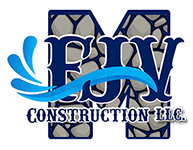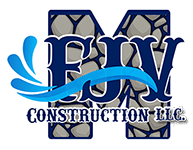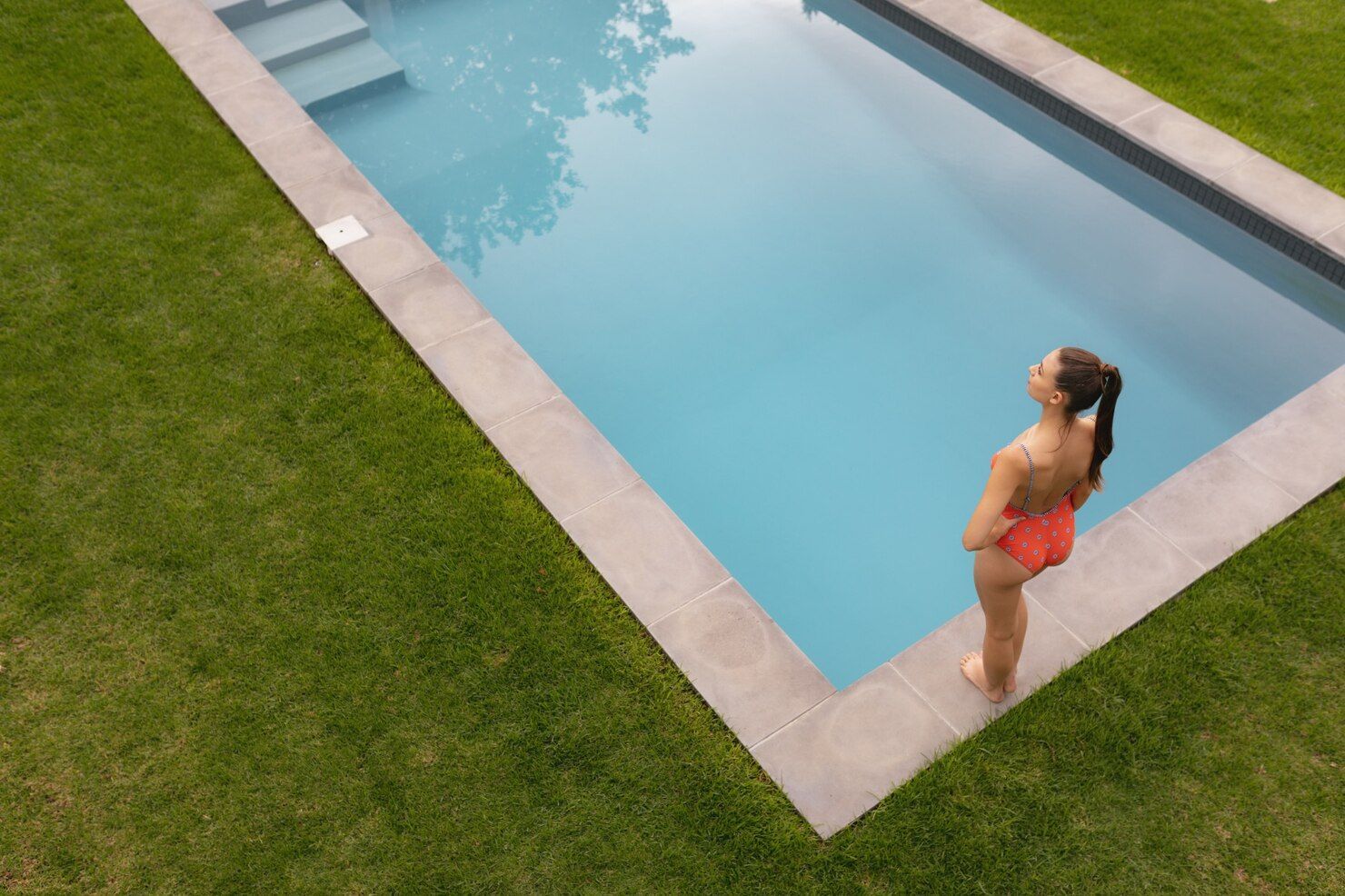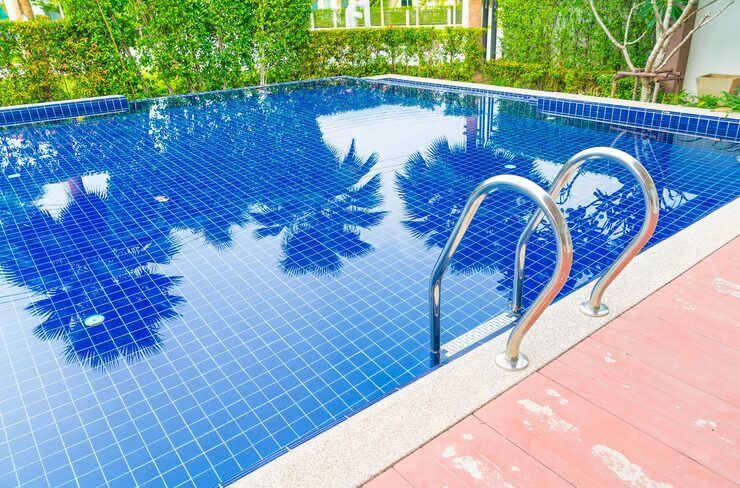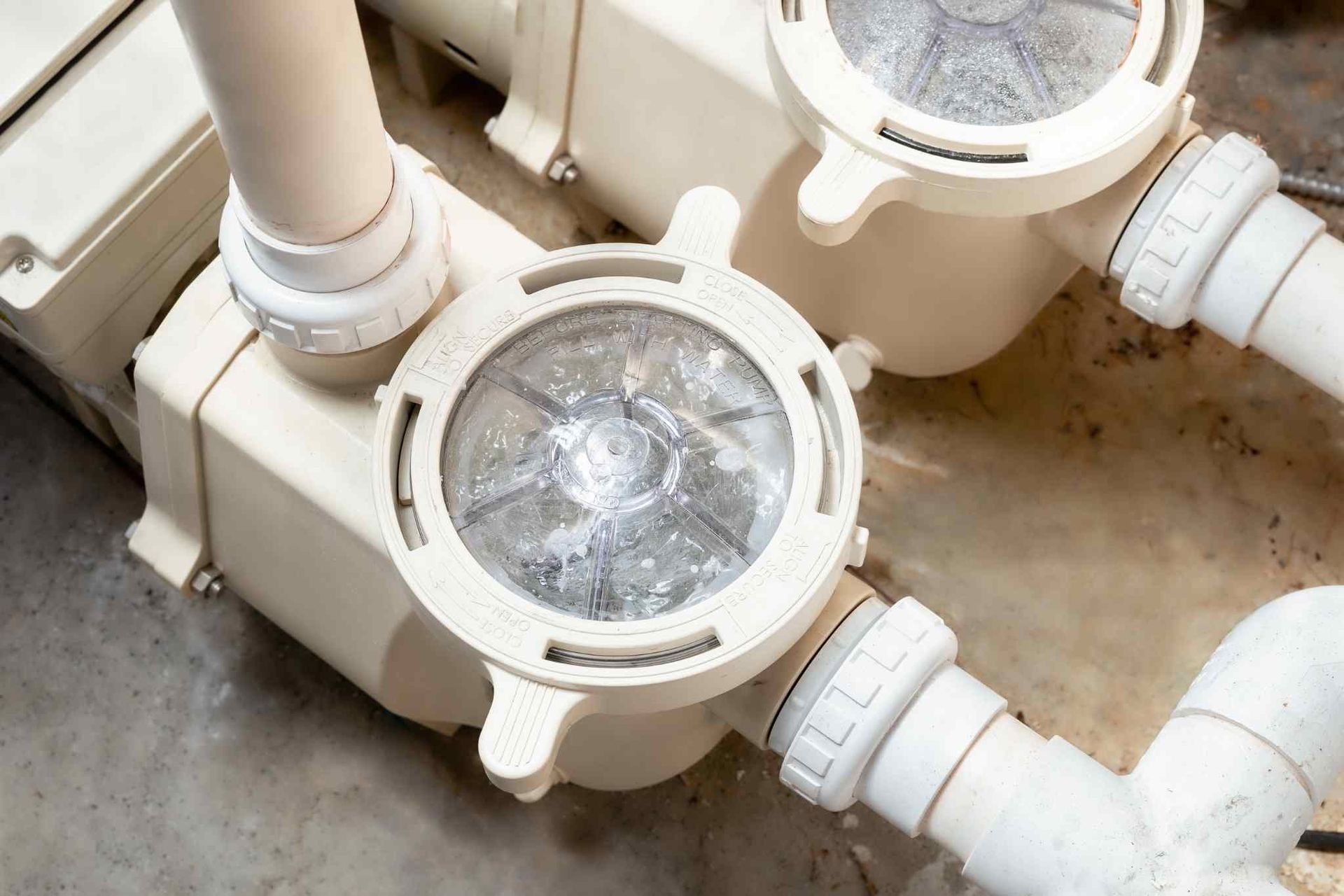8 Pool Maintenance Mistakes to Avoid: Insights from a Trusted Pool Contractor
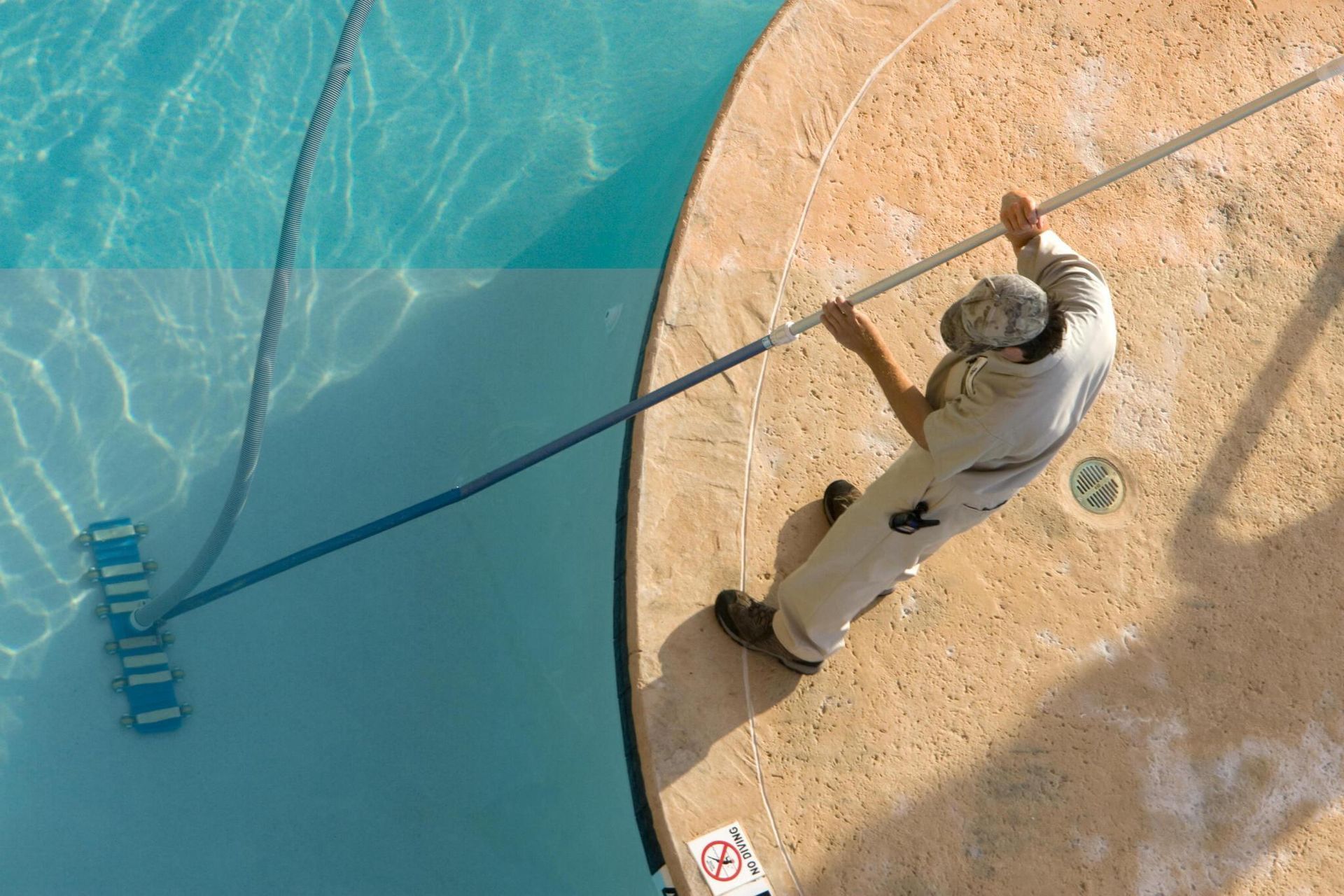
1. Neglecting Regular Cleaning
According to a trusted pool contractor in Bethel, CT, neglecting regular pool cleaning is akin to inviting unwanted guests—algae, debris, and harmful bacteria — to your backyard oasis.
Breeding Ground for Algae
When pool cleaning is neglected, algae can quickly establish a foothold. The water turns from a crystal-clear haven to a murky green mess. Algae ruin the aesthetics and pose health risks, making the pool water unsafe for swimmers.
Debris Dilemma
Leaves, twigs, and other debris enter your pool, causing clogs and overworking your pool's filtration system. This extra strain can lead to costly repairs and inefficient water circulation.
Bacteria's Playground
Without regular cleaning and adequate sanitization, bacteria thrive. This can result in waterborne illnesses and skin irritations for swimmers, making your pool a health hazard.
Recommended Cleaning Routines
Maintaining a pristine pool begins with a well-established cleaning routine. Here's what you need to do:
- Skimming: Invest in a reliable pool skimmer to skim away leaves and debris accumulating on the water's surface. Skimming should be a daily ritual during the swimming season to keep your pool inviting. This is also applicable to in-ground pool maintenance.
- Vacuuming: Vacuum your pool's bottom regularly to remove dirt and debris that have settled there. Ensure you reach every nook and cranny to prevent algae growth and stubborn stains.
Tips for Efficient Cleaning
Cleaning your pool efficiently requires the right tools and techniques. Here's how to make your pool sparkle:
- Choosing the Right Cleaning Equipment: Invest in top-quality cleaning equipment. A skimmer with a sturdy handle and a vacuum with strong suction will make your cleaning tasks more manageable and effective. A trusted pool contractor can recommend the best brands and models.
2. Incorrect Water Chemistry
Maintaining the right water chemistry in your pool is akin to maintaining the perfect recipe. The ingredients must be in harmony to achieve that delectable taste. Water chemistry harmony is essential for a safe and enjoyable swimming experience in the world of pools.
Swimming Comfort and Safety
Properly balanced water chemistry ensures swimmers' comfort and safety. When pH levels are off-kilter, water can irritate the eyes and skin. It's not just about aesthetics; it's about well-being.
Equipment Longevity
Balanced chemistry doesn't just benefit swimmers—it also extends the life of your pool equipment. Unbalanced water can corrode pipes, damage pumps, and deteriorate pool surfaces. Such damage can be costly to repair.
Prevention of Waterborne Illnesses
Water with incorrect chemistry can harbor harmful microorganisms, leading to waterborne illnesses. It's essential to prevent these pathogens from taking residence in your pool.
Testing and Monitoring
Achieving and maintaining proper water chemistry starts with regular testing and monitoring. Here's what you need to know:
- Pool Water Testing Kits: Invest in a reliable pool water testing kit. These kits allow you to measure crucial parameters accurately, ensuring a clear picture of your water's health.
Key Parameters to Monitor
- pH Levels: The pH level should be maintained between 7.4 and 7.6. A trusted pool contractor can help you find the right balance and suggest suitable pH increasers or decreases.
- Chlorine Levels: Chlorine is essential for sanitizing pool water. Monitor and adjust chlorine levels regularly to keep your pool water safe and clean.
- Alkalinity and Calcium Hardness: Alkalinity levels should be 100-150 ppm, while calcium hardness should be maintained between 200-400 ppm. Balancing these parameters prevents water from becoming corrosive or causing scaling.
For those seeking assistance with pool maintenance, particularly if you're a new pool owner navigating the waters, it can be beneficial to explore nearby experts such as FJV Construction - Bethel CT, known for their professional pool project services.
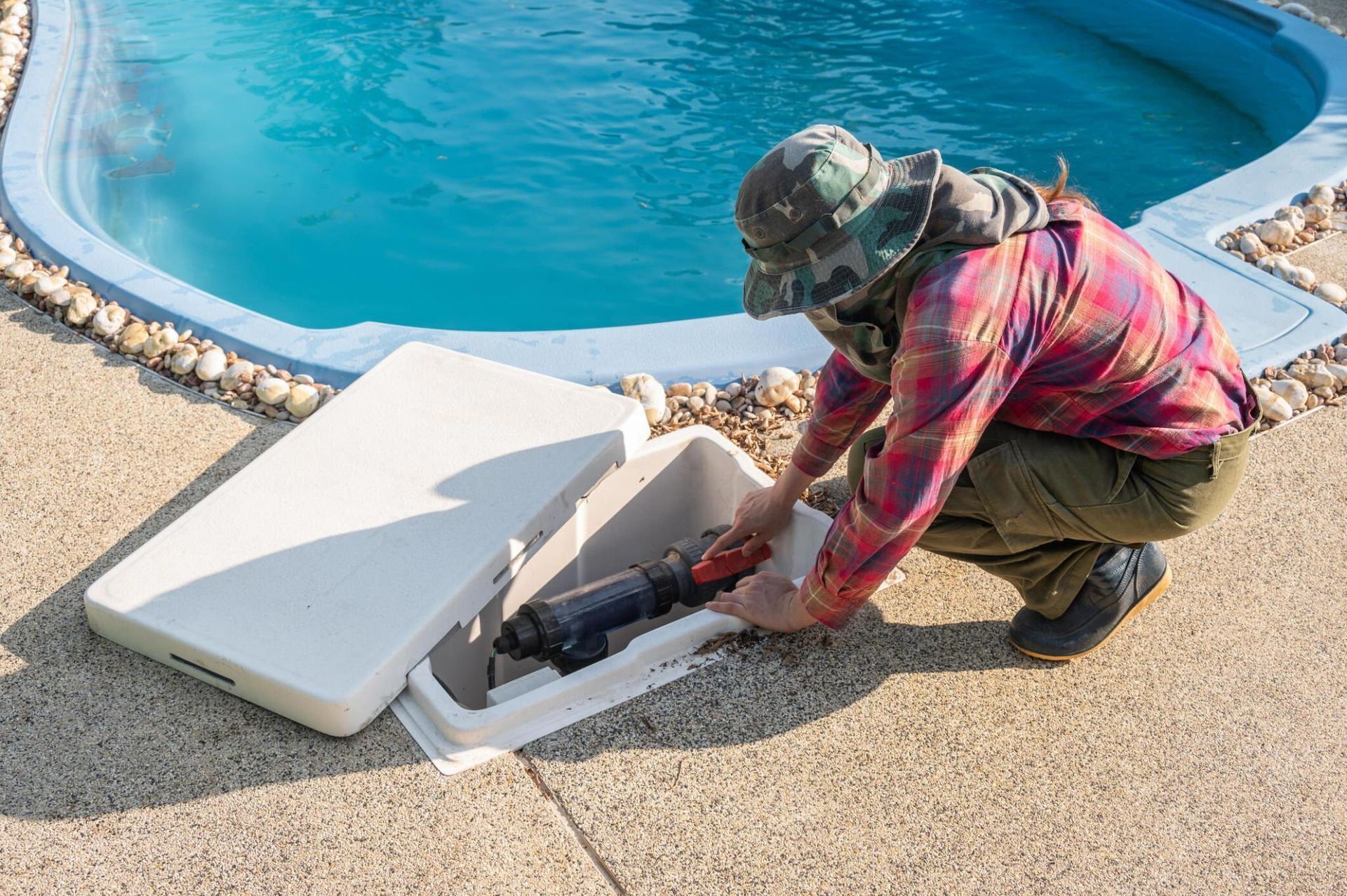
3. Overlooking Filtration System Maintenance
To maintain your pool's pristine condition, you need to comprehend the unsung hero of your pool—the filtration system. Understanding its role is crucial, and knowing when to call in a trusted pool contractor for assistance can save you from costly issues down the road.
Debris Detox
Your pool's filtration system is the custodian responsible for cleansing the water. It traps debris, dirt, and contaminants, preventing them from turning your pool into a murky mess.
Heart of Circulation
An efficient filtration system ensures proper water circulation. It keeps the water moving, preventing stagnation and maintaining water quality.
Guarding Against Algae
Pool filters act as a barrier against algae growth. An inadequately maintained filtration system can lead to algae blooms, which are not only unsightly but also challenging to eradicate.
Signs of a Malfunctioning Filtration System
Recognizing the warning signs of a malfunctioning filtration system is essential for timely intervention. Keep an eye out for these red flags:
Poor Water Circulation: If you notice stagnant areas or uneven water movement in your pool, it could be a sign that your filtration system is struggling.- Cloudy Water: Filtration issues can result in cloudy water, indicating that the system isn't effectively removing particles and contaminants.
- Increased Chemical Consumption: An overworked filtration system may require more chemicals to maintain water balance. This not only strains your budget but can also lead to chemical imbalances.
Regular Maintenance Steps for Pool Filters
Ensuring that your filtration system functions optimally involves routine maintenance. Here are the steps you need to follow:
- Cleaning the Filter: Regularly cleaning the filter is vital for its efficiency. Depending on your filter type—sand, cartridge, or diatomaceous earth (DE) — you must follow specific cleaning procedures. A trusted pool contractor can guide you on the right method for your system.
- Replacing Filter Media: Over time, filter media can degrade and become less effective. Replace sand or cartridges as recommended by the manufacturer or as a trusted pool contractor suggests to maintain optimal filtration.
- Inspecting Pump and Motor: Your pool pump and motor are integral to the filtration system. Inspect them for signs of wear, leaks, or unusual noises. Regular maintenance and prompt repairs can extend their lifespan and save you from unexpected breakdowns.
4. Ignoring Pool Circulation
Proper pool circulation is the lifeblood of your aquatic haven, and overlooking it can lead to a host of problems.
Preventing Stagnation
Proper circulation prevents stagnant water, which can become a breeding ground for algae and bacteria. Stagnant water also contributes to the uneven distribution of pool chemicals.
Even Chemical Distribution
Efficient circulation ensures that chemicals, like chlorine, are evenly distributed throughout your pool. This uniformity helps maintain water clarity and sanitation.
Debris Defense
A well-circulated pool is more effective at capturing debris and sending it to the pool skimmer and filter. This reduces the burden on your filtration system.
Symptoms of Poor Circulation
Recognizing the signs of poor pool circulation is essential for timely intervention. Look out for these indicators:
- Dead Spots: Dead spots are areas where water remains still, creating a breeding ground for algae and debris buildup.
- Debris Accumulation: If you consistently find debris accumulating in certain areas of your pool, it's a sign that water circulation is lacking in those spots.
- Uneven Chemical Levels: Test your pool water regularly. If you notice significant variations in chemical levels across different areas of the pool, it may be due to poor circulation.
Enhancing Pool Circulation
Improving your pool's circulation can be achieved through specific measures, and consulting a trusted pool contractor is often the wisest path to take.
Adjusting Skimmer and Return Jet Settings
Your pool's skimmer and return jet settings can impact circulation. Experiment with different settings to find the right balance between skimming and returning water to ensure efficient circulation.
Installing a Pool Circulation Booster
If your pool still struggles with circulation despite adjusting settings, consider installing a pool circulation booster. This can include features like waterfalls, fountains, or additional jets strategically placed to enhance water movement.

5. Skipping Routine Inspections
Routine pool inspections are like regular check-ups with a doctor; they help diagnose issues early, preventing costly treatments down the road, according to a trusted pool contractor in Bethel, CT.
Spotting Hidden Issues
Regular inspections allow you to spot hidden problems, such as leaks, cracks, or equipment wear, before they escalate into costly repairs.
Maintaining Water Quality
By catching issues early, you can maintain water quality, ensuring your pool remains a safe and enjoyable environment for swimmers.
Establishing a Maintenance Schedule
Establishing a consistent maintenance schedule is key to effective pool ownership. Let's break down what this entails:
- Weekly Visual Inspections: Conducting weekly visual inspections is your first line of defense against pool problems. During these quick check-ups, look for any visible issues, such as cracks, leaks, or signs of wear and tear on pool equipment.
- Seasonal Thorough Inspections: While weekly checks are essential, seasonal thorough inspections, ideally performed by a trusted pool contractor, are equally vital. These comprehensive assessments dig deeper, examining every nook and cranny of your pool and its equipment to ensure everything is in top shape.
6. Neglecting Winterization
If you live in an area with cold winters, neglecting pool winterization is akin to leaving your home's windows wide open during a snowstorm. It's a mistake that can lead to costly consequences.
Preventing Freeze Damage
Winterization prevents freeze damage, which can wreak havoc on your pool's plumbing and equipment. When water freezes, it expands, potentially causing pipes to burst and equipment to crack.
Preserving Pool Surfaces
Winterizing your pool also protects its surfaces. Without proper care, freeze-thaw cycles can lead to cracks and damage to your pool's interior finish.
Steps to Winterize a Pool
To safeguard your pool during the cold season, you need to follow a few crucial steps:
- Balancing Water Chemistry: Before closing your pool for the winter, ensure that the water chemistry is balanced. This prevents scaling and corrosion during the off-season. Seek advice from a trusted pool contractor to help you achieve the right chemical balance.
- Draining Pool Equipment: Properly draining and winterizing your pool equipment is vital. This includes your pool pump, filter, heater, and any other accessories. Your trusted pool contractor can perform this task to ensure it's done correctly.
Covering the Pool
Lastly, invest in a high-quality pool cover to shield your pool from debris and protect it from the elements. A securely fitted cover also adds an extra layer of safety, preventing accidental access during the winter months.
Consequences of Not Winterizing
Failing to winterize your pool can lead to a cascade of problems, including:
- Costly Repairs: Unprotected plumbing and equipment can suffer damage that necessitates expensive repairs.
- Surface Damage: Freeze-thaw cycles can lead to cracks and damage to your pool's surfaces, leading to costly resurfacing.
- Water Contamination: Without proper winterization, your pool water can become stagnant and contaminated, requiring extensive cleaning and chemical treatments in the spring.
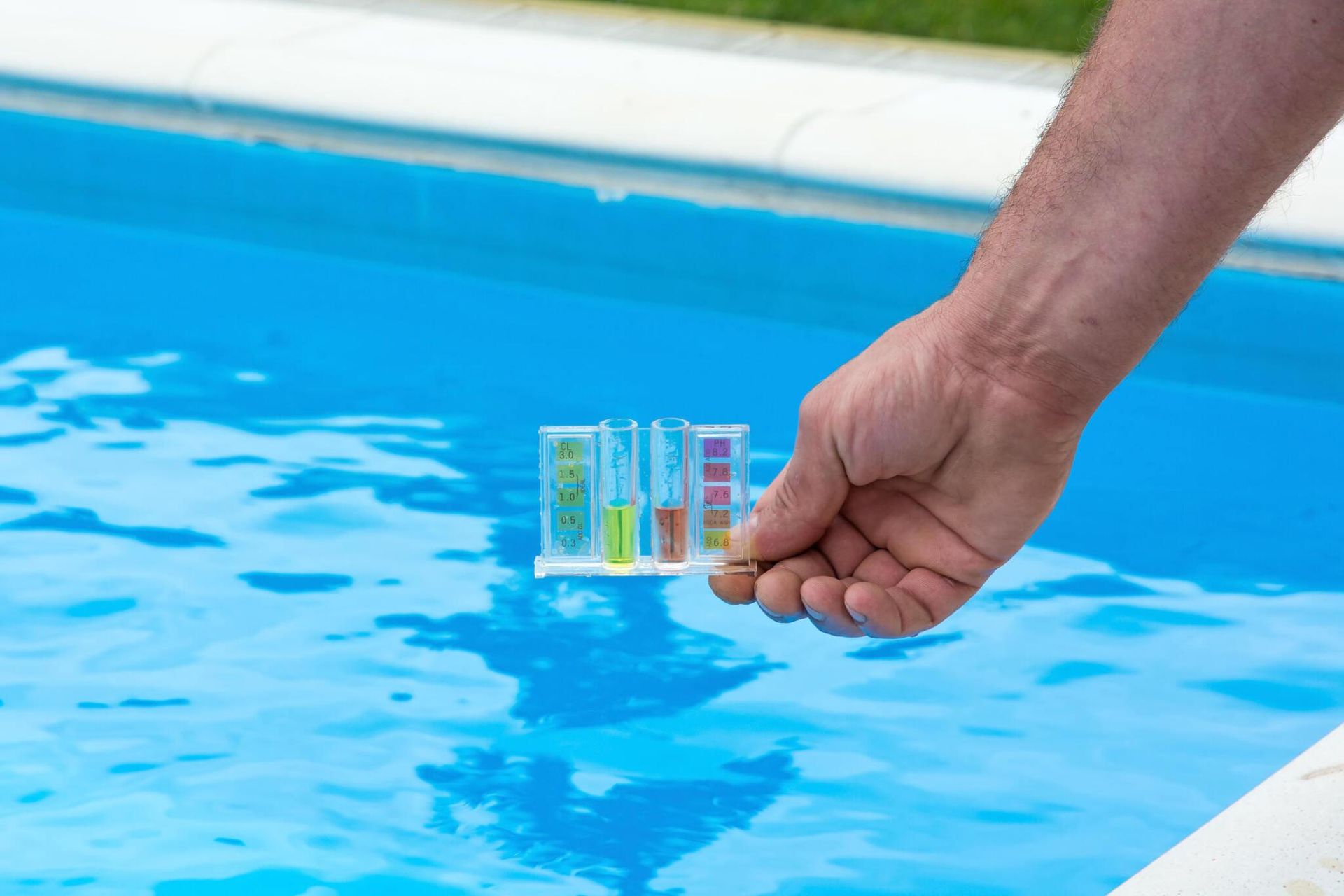
7. Misusing Pool Chemicals
A trusted pool contractor in Bethel, CT, says that misusing pool chemicals is akin to handling volatile substances without proper care—it can lead to dire consequences.
Health and Safety Risks
Improper handling or storage of pool chemicals can pose significant health and safety risks to you and your family. Exposure to chemicals can lead to skin and eye irritations, respiratory issues, and more severe health problems if not managed correctly.
Equipment Damage
Pool chemicals, when used incorrectly, can corrode and damage your pool equipment. This includes your pool pump, filter, and even the pool's surface. Such damage can result in costly repairs or replacements.
Safe Handling and Storage
To avoid the potential hazards associated with pool chemicals, it's crucial to follow safe handling and storage practices:
- Follow Manufacturer Instructions: Always follow the manufacturer's instructions for each chemical product you use in your pool. These instructions are there for your safety and should be treated as gospel.
- Wear Appropriate Safety Gear: When handling pool chemicals, wear the recommended safety gear, including gloves and eye protection. Taking these precautions minimizes the risk of skin and eye irritation.
- Never Mix Chemicals: Mixing different pool chemicals can lead to dangerous chemical reactions. Avoid this at all costs and consult a trusted pool contractor if you need assistance with chemical adjustments.
Consulting with a Trusted Pool Contractor
When it comes to pool chemical management, it's wise to consult with a trusted pool contractor. Here's why:
- Expert Guidance: A trusted pool contractor possesses the knowledge and experience to recommend the right chemicals and their proper usage based on your pool's specific needs.
- Customized Solutions: They can tailor chemical treatments to address any unique challenges your pool may face, such as algae blooms or pH imbalances.
- Safety Assurance: With a trusted pool contractor overseeing your chemical management, you can rest assured that safety protocols are followed diligently, mitigating risks.
8. DIY Repairs
The allure of DIY pool repairs is undeniable—it's a chance to flex your DIY muscles and save some money. However, it can quickly turn into a poolside nightmare if things go awry.
Cost Savings Temptation
The prospect of saving money on pool repairs is what often draws homeowners to DIY projects. However, the true cost may only reveal itself when a well-intentioned repair job goes wrong.
Risk of Complications
DIY pool repairs can lead to complications that professionals are trained to avoid. A seemingly simple repair can spiral into a complex problem, making the situation worse and more expensive.
When to Call a Professional Pool Contractor
Knowing when to throw in the DIY towel and reach out to a trusted pool contractor can save you time, money, and frustration. Here are some situations where professional expertise is essential:
- Structural Repairs: Any repair involving the pool's structure, such as cracks in the pool walls, plumbing leaks, or extensive tile and coping work, should be left to the experts. Attempting these repairs without the necessary skills can lead to more significant damage.
- Electrical Issues: Handling electrical components around the pool, like pool pumps and lighting, can be dangerous without proper training. Electrical mishaps can pose significant safety risks, making professional intervention crucial.
- Complex Equipment Repairs: If your pool equipment, such as the pump or filter, is malfunctioning, it's best to consult a trusted pool contractor. They have the knowledge to diagnose and repair complex issues efficiently.
Risks and Complications of DIY Repairs
Attempting DIY pool repairs without the necessary expertise can lead to the following risks and complications:
- Costly Mistakes: DIY errors can lead to more significant problems, costing you more money in the long run.
- Safety Hazards: Mishandling electrical components or making structural mistakes can pose safety hazards.
- Voided Warranties: DIY repairs may void equipment warranties, leaving you responsible for replacements.
If you are a new pool owner wondering how to best care for your pool, you should explore the services of local professionals like FJV Construction - Bethel CT, who specialize in providing professional pool project services.
Can You Shock a Pool During the Day?
When it comes to pool maintenance, one common question that often arises is whether it's suitable to shock a pool during the day.
Shocking your pool during the day is not only suitable but often preferred for several reasons. Daylight provides better visibility, allowing for even distribution of the shock treatment, and it enables close monitoring of the process. Moreover, sunlight during the day can aid in the breakdown of chlorine compounds, enhancing the treatment's effectiveness. To perform daytime pool shocking correctly, first test the water and wear proper safety gear. Dissolve the shock treatment in a bucket of water, distribute it evenly across the pool's surface, and ensure thorough mixing by running the circulation system.
After waiting for the recommended time, test the water again to ensure safe chlorine levels for swimming. Regardless of the time of day, safety precautions should always be followed, including keeping pool chemicals out of reach, adhering to manufacturer instructions, avoiding chemical mixing, and waiting for safe chlorine levels before allowing swimming.
Hire a Trusted Pool Contractor for Your Pool Maintenance Today!
Ready to transform your pool dreams into reality? Choose FJV Construction - Bethel CT. Our team of experienced professionals specializes in pool design, installation, maintenance, and repairs. With a commitment to quality and customer satisfaction, we ensure that your pool project is in the best hands. Contact us today and let's turn your vision into a refreshing reality. Your dream pool is just a call away! Contact us today for a consultation!
New Paragraph
